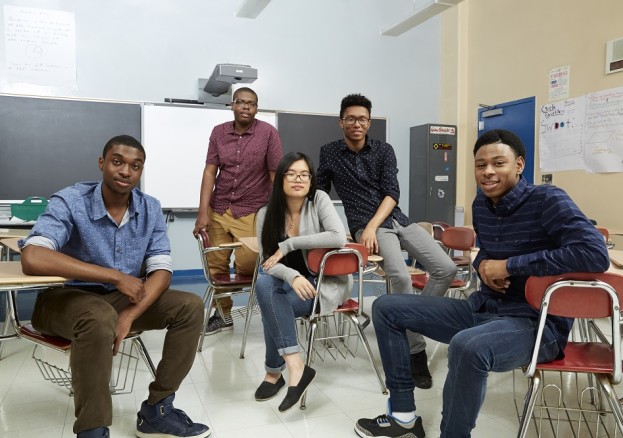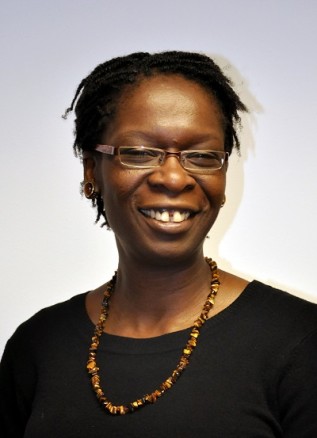

Black History Month speaks with Bola Fatimilehin, Head of Diversity at Royal Academy of Engineering who is heading up a Programme to increase diversity and inclusion both inside the Royal Academy of Engineering itself, and across the engineering profession.
I am Head of Diversity, heading up a Programme to increase diversity and inclusion both inside the Royal Academy of Engineering itself, and across the engineering profession. My role is fairly challenging in that the engineering profession is huge! There are 5.4 million engineers employed in the UK across 576, 440 organisations, generating £455.6 billion GDP for the UK. However, there is an engineering skills crisis and engineering companies are projected to need 182,000 people with engineering skills each year to 2022. I hope the Diversity and Inclusion programme will help attract recruit and retain more people in engineering and contribute to addressing this skills shortage.
There are a number of reasons why lack of diversity in STEM professions persists. In general, STEM workforces tend to be male-dominated – although some areas have large proportions of women e.g. biomedical sciences. To most people, the image of an engineer is most likely a white male, and whilst this is not always true, this perception persists. This leads to a lack of visible female and ethnic minority role models. Over recent years, more action has been taken by a number of organisations, including the Academy, to bring more diverse role models to the attention of young women and ethnic minorities, illustrating that engineering is for ‘people like me’. Another factor is the perception of engineering as dirty, greasy and manual which often puts people off. However, many engineers work in office and other environments with tools and equipment that don’t reflect this image – for instance engineers working on robotics, software, developing instrumentation, surgical equipment and prosthesis. In addition, maths and physics, the typical gateway subjects to a qualification in engineering, are often perceived as difficult by many young people, although lots of women and ethnic minority people achieve these qualifications.
Unconscious bias is what happens when our brains make incredibly quick judgments and assessments of people and situations without us realising. Our biases are influenced by our background, cultural environment and personal experiences. It is likely that everyone has some level of unconscious bias and/or pre-judges people and situations based on own their particular experience and background. Organisations are a subset of society and it is highly likely that all work places have some level unconscious bias. It is likely that unconscious bias impacts crucial decision-making which is why many employers deliver training to staff to minimise its impact.
What would you say, to the young graduate, who has followed all the advice, worked hard to get good GCSE’s and A levels; excelled at university; got his or her degree in engineering and can’t find a training placement?
First of all, I would say well done, you are well on your way to securing a job in engineering. If you have not yet begun your university degree, I would say look for an engineering degree that offers the option of a Year in Industry or industrial placement as this will put you in a good position to secure a job in future. High Fliers, an organisation that provides analyses of the graduate employment market reports that this year, 32% of entry-level positions are expected to be filled by graduates who have already worked for the same organisation, either through paid internships, industrial placements or vacation work. Finding a work placement is really important to improving employment chances. If you are finding it difficult securing a placement, speak to lecturers, teachers, fellow students, networks friends and family to find out if anyone knows someone who works in engineering. If you do, this person could be your mentor and help you put together a plan of action. I would encourage all students to be persistent because the rewards of working in engineering are excellent. On average, the graduate starting salary for engineering and technology is £27,079 – over a fifth more than for all graduates.
There is definitely an issue with many recruiters focusing much of their attention on Russell Group universities. I would like to think that this view is being challenged as organisations and recruiters realise talent exists in newer universities (former polytechnics). It takes years to change tradition and behaviour; and whilst the more prestigious universities are perceived to turn out more highly qualified graduates, there are plenty of talented graduates coming out of the newer universities. The engineering skills crisis suggests a need to double the number of graduates going into engineering employment which will not be possible through a focus on top universities alone.
Shouldn’t our top universities do more to recruit BME people?
I agree that top universities should do more to recruit BME people. However, attracting black graduates into engineering cannot be solved simply by addressing this one issue. Recruiters and HR managers also need to change their behaviour and look to recruit from a wider range of universities in the knowledge that talent can be found in many places. Whilst a privileged education might be a proxy for achievement and job success, those who have had to fight harder to achieve success, in many cases, possess a level of resilience and tenacity valued by employers.
What is the Royal Academy of Engineering doing to ensure that Equality and Diversity and the recruitment of a more diverse workforce is at the top of the agenda within Engineering?
We currently collaborate with around 55 engineering employer and employer-led organisations under the umbrella of the Diversity and Inclusion Leadership Group (DILG). Board level representatives have been working with us for the past 3 years to increase diversity and inclusion across the sector, and within their companies. This year, the Group will be working to promote best inclusive recruitment practice. It will consider areas such as levels of data collection necessary to successfully monitor the progress of minority ethnic, female and other diverse groups through recruitment processes; the impact of typical recruitment and assessment approaches and cultural preparation necessary within companies to ensure diverse graduates have an inclusive experience once in their organisation.
What schemes do you have in place to get more young black students into Engineering careers?
The engineering skills gap and the realisation that only 6% of engineering professionals are from ethnic minority backgrounds (despite 25% completing engineering degrees) has been a trigger for two initiatives to get more Black students into engineering. The first project, called Designed to Inspire brought ethnic minority students together with a number of ethnic minority engineering role models at different points in their careers to give insight into what engineers do and the range of people working in the sector. A number of videos, booklet and posters were developed to support the events. The second initiative, the Engineering Engagement Programme (EEP), built on the first by bringing 13 engineering companies together with SEO London to deliver events targeted at minority ethnic, female and socially disadvantaged engineering students. The events aim to increase the chance of students successfully applying for graduate opportunities in engineering. Employers from all organisations are actively involved in delivering the events by giving insight into engineering careers, recruitment practices, CVs and different types of interviews. Each event finishes with a speed networking event where all students get to discuss opportunities available at all companies with engineering and human resource managers. The EEP runs until March 2018 – information on how to apply is included on this page.
You are a respected and experienced HR and Diversity specialist and of course you see not only the ethical case but always the business case for more diversity, what would your advice be to HR managers and graduate recruiters when recruiting new talent.
To HR managers and graduate recruiters, I would say, widen the net as much as possible to attract and reach diverse talent. Use your networks both inside and outside your organisation and make sure your managers recognise the impact unconscious bias can have on recruitment decisions. Make potential candidates aware that your company positively welcomes applications from people from all backgrounds and if possible, make them aware of the diverse people working in your organisation – show them your organisation employs ‘people like me’. If you use recruitment agencies, alert them to the need to put forward diverse candidates and challenge them if they don’t. Steer clear of homogenous recruitment panels and do all you can to make all diverse candidates feel welcome. Most importantly, monitor the outcome of your recruitment activity e.g. proportions of ethnic minority candidates who apply, are shortlisted and appointed.
We have a lot of untapped young talent in this country. What advice would you give to a 14 year old young person in Brixton who has a talent for maths or science and is interested in looking at becoming and engineer?
Pay attention in class and do not get distracted by peers who are less interested in making the most of the opportunity to learn. Focus on getting good grades in maths and science in particular, and ask your teachers, family and friends about engineering and the different jobs engineers do. If you can, find an engineer to act as mentor, talk to them about your aspirations and get their advice. Visit www.tomorrowsengineers.org.uk to find out more about engineering and engineering careers. You might also find help an d support at www.generatinggenius.org.uk.
It’s black history month so who would you choose to be your black history month hero for 2016 and why?
I would choose Barak Obama. As he comes to the end of his term as President of the US, I think he has done a reasonable job against the odds. He is a great orator and role model for everyone.
Will you be attending any Black History Month events this year?
I’m not sure which events I will attend this year because at the time of this interview, not all events are advertised. In the meantime, I will be going to the Dandyism and Black Masculinity exhibition at the Photographers Gallery in London which runs until the end of September. Hope you find time to go to an event and have a fantastic Black History Month 2016!
